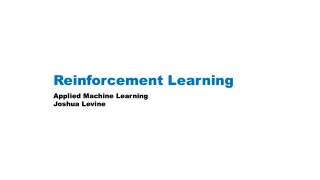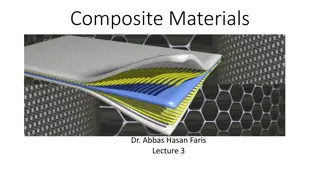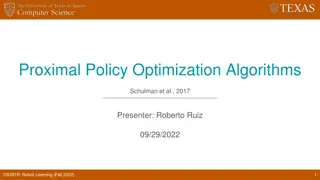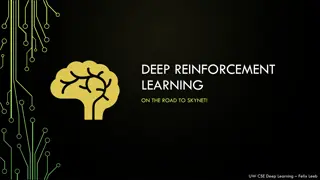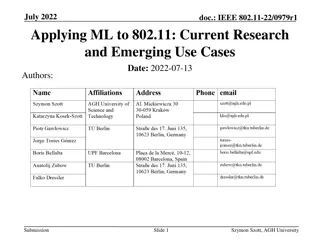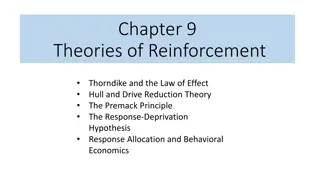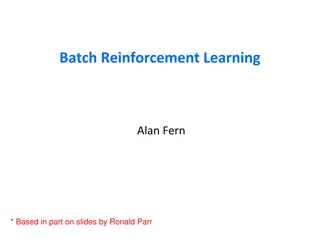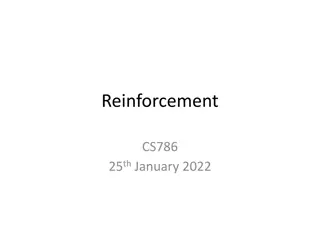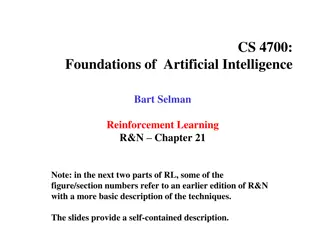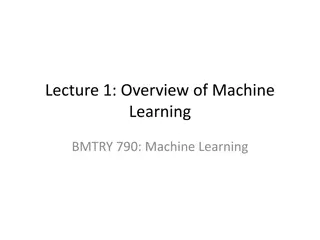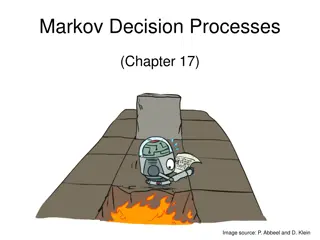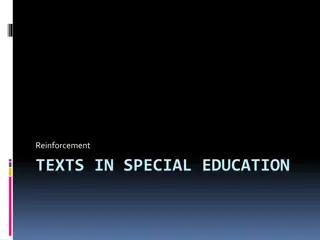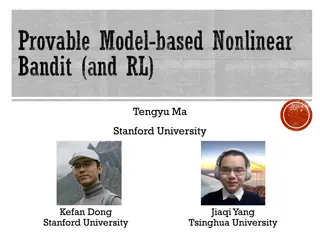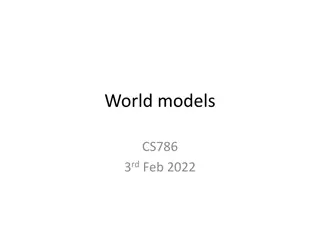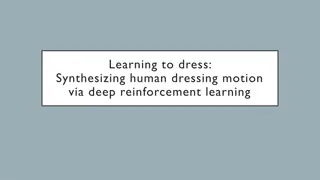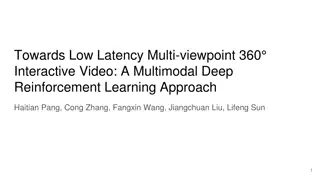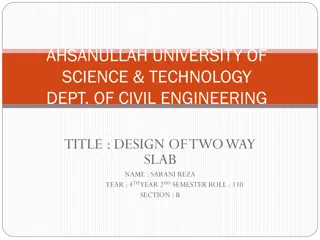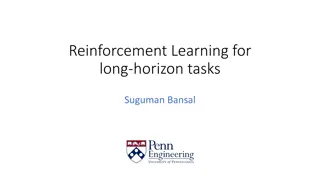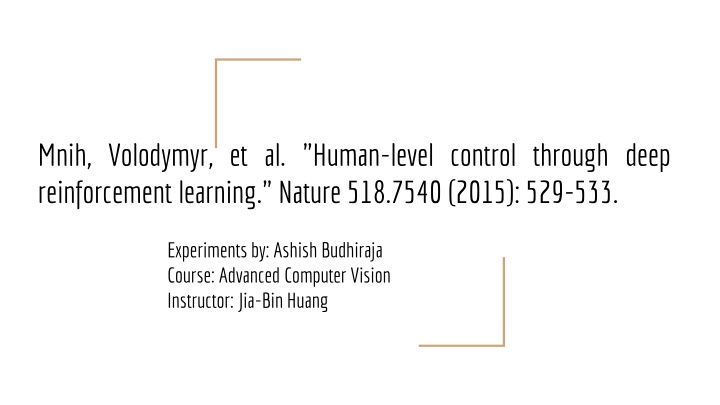
Deep Reinforcement Learning Experiments and Visualizations
Discover the latest advancements in deep reinforcement learning through experiments and visualizations. Explore research on human-level control and Q-learning in computer vision. Dive into videos showcasing learning rates in various games like Breakout, Pong, and Seaquest. Access feature visualizations and graphs for Breakout and Space Invaders. Credits to Prof. Fred G. Martin and resources from Mnih et al.'s work.
Download Presentation

Please find below an Image/Link to download the presentation.
The content on the website is provided AS IS for your information and personal use only. It may not be sold, licensed, or shared on other websites without obtaining consent from the author. If you encounter any issues during the download, it is possible that the publisher has removed the file from their server.
You are allowed to download the files provided on this website for personal or commercial use, subject to the condition that they are used lawfully. All files are the property of their respective owners.
The content on the website is provided AS IS for your information and personal use only. It may not be sold, licensed, or shared on other websites without obtaining consent from the author.
E N D
Presentation Transcript
Mnih, Volodymyr, et al. "Human-level control through deep reinforcement learning."Nature 518.7540(2015):529-533. Experimentsby:AshishBudhiraja Course:Advanced ComputerVision Instructor: Jia-BinHuang
Videos at different Learning Rate (Breakout) 77 epochs 200 epochs breakout 77 breakout 200
Videos at different Learning Rate (Pong) 141 epochs 200 epochs pong 141 pong 200
Videos at different Learning Rate (Seaquest) 178 epochs 200 epochs seaquest 178 seaquest 200
Feature Visualization file:///home/ashishkb/RL_ACV/neon/simple_dqn/results/breakout.html
Breakout Graphs
Space Invaders Graphs
Credits: 1)Prof. FRED G. MARTIN http://www.cs.uml.edu/ecg/index.php/AIfall16/PS3b 2)Mnih, Volodymyr, et al. "Human-level control through deep reinforcement learning." Nature 518.7540 (2015): 529-533. 3)https://github.com/devsisters/DQN-tensorflow 4)https://github.com/tambetm/simple_dqn

